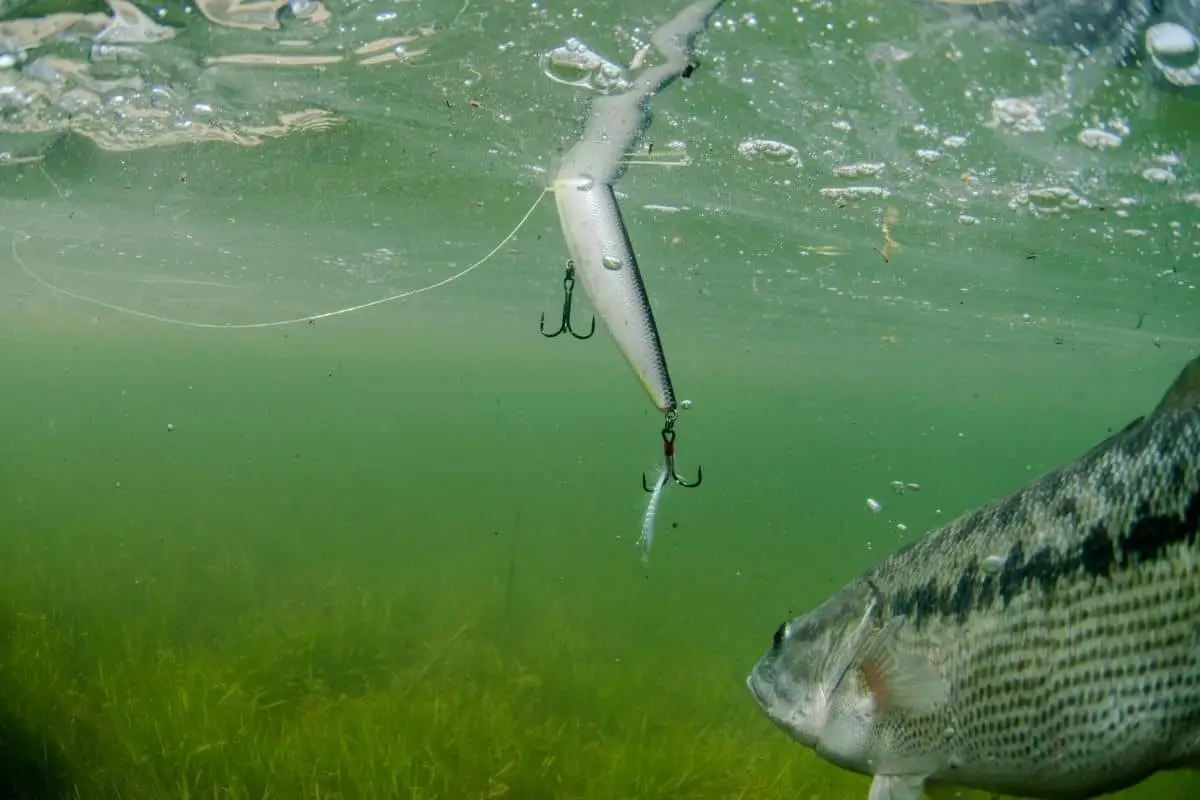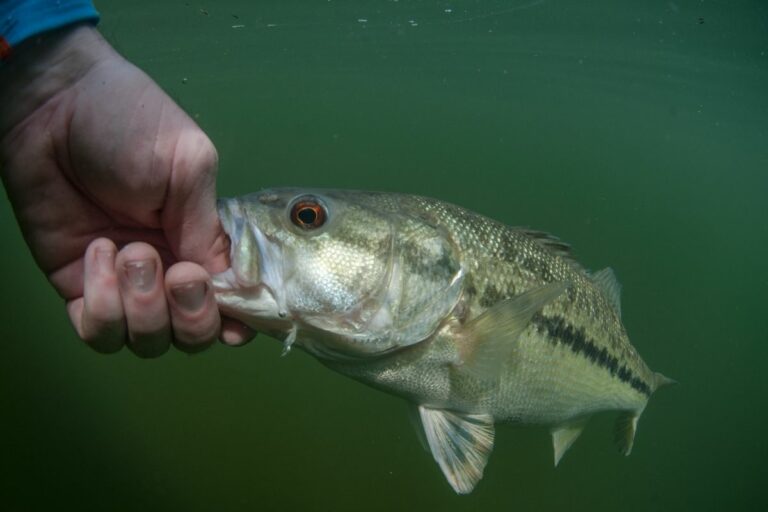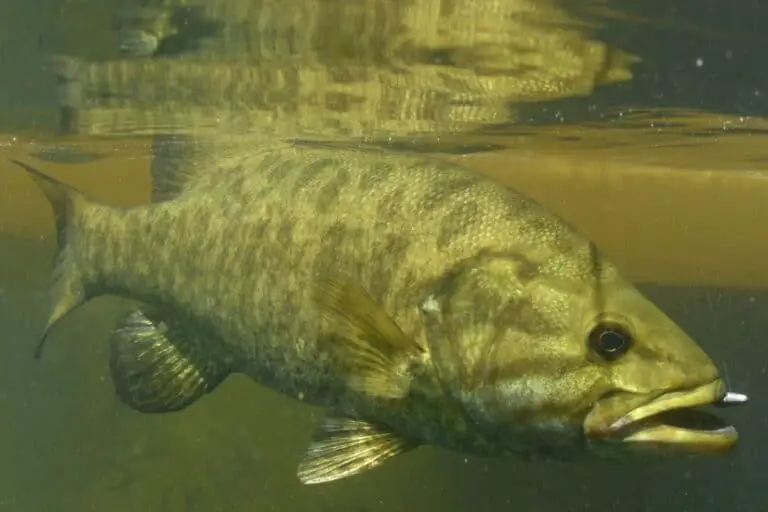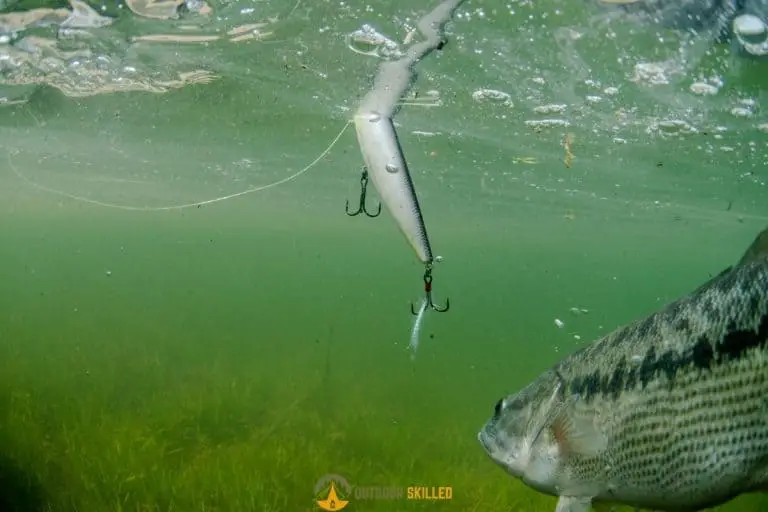Do Bass Remember Lures? Can You Catch The Same Fish Twice?
It’s a popular belief that fish can easily forget things in just a few minutes and that they rely mainly on their instincts when it comes to striking lures. However, some scientific research has proven that this is not always the case as not all fish have the same memory or level of intelligence.
Species such as bass, catfish, stripers and carp have better memories. While species pike and bluegill are known to have poor memories and will likely strike again a few minutes after being caught and released.
Researchers have actually ranked bass as slightly more intelligent than many other fish species because of their good memory and ability to adapt to change.
So, do bass remember lures? Yes, bass do remember lures. As a matter of fact, if you caught a bass on a spinner lure, it will be difficult to capture the same bass again using the same lure. Bass have good memories, so they learn to avoid specific lure models or colors as they become wary and start to associate these lures with danger.
Continue reading to learn more about the memory of bass fish and what is the best lure to catch them.
Table of Contents
Do Bass Have a Good Memory?

Bass are known to be one of the most intelligent fish species. They have sharp memories, even if it is not as sharp as that of a human.
Bass fish have the ability to retain important facts and events for a long period of time and not just a few minutes as many believe.
They know where they are and they remember the places where they’ve been so they can easily return after being away
Sometimes, bass learn to avoid some specific lures because they can remember some aspects of these lures (color, shape, sound, or action) that they associate with danger.
How Long Does a Bass Fish’s Memory Last?
How long a bass fish’s memory lasts depends on two main factors how much danger is involved and the degree of reinforcement
To put it more simply, bass will remember the things they associate with danger and they will continue to remember as long as they are getting regularly exposed to these things.
So, if you expose bass fish to the same lure they associate with danger every couple of days for a week or more, it might take about 20 days before the bass become less wary of it to bite again.
That’s why anglers need to keep a wide variation of lures to avoid using the same lure.
What Lures Do Bass Like the Most?
Aside from having a good memory, bass fish also have heightened senses. While they don’t see in a lot of detail, they can recognize the overall shape of the lure and can sometimes see flashes of specific colors.
The best lures to use when bass fishing are spinnerbaits, jigs, soft plastics, lipless crankbaits, and topwater lures.
When choosing a lure for bass, keep in mind that they typically prefer lures that are designed to look similar to what they naturally eat.
It’s recommended to go for lures with moving parts that can mimic the movement of real baitfish to get the bass’s attention. Lures that produce distinctive noises and vibrations are also effective in triggering a response in the bass fish to get them to bite
You also need to choose lures in colors that are within the range of colors that bass fish can see.
The composition of bass’ eyes responds the most to two colors which are red and green. Outside these two colors, other colors may appear quite similar to bass, so they won’t trigger any response from them.
What You Need to know to Fish for Bass
Now that you know the types of lures that bass prefer, there is some basic information you need to know to help you catch more bass including where to target them, the best time to target them, and what kind of gear to use.
The Best Areas to Target Bass
Bass fish can generally be found in lakes or rivers, in deep or shallow water.
However, different bass species are constantly in pursuit of areas with the most comfortable water temperature and current for them to feed. So, the key to successfully targeting bass is knowing where these areas are.
Largemouth bass have a preference for warm temperatures and slow currents, they are mostly found towards the south. Smallmouth bass, on the other hand, have a preference for cool temperatures and faster currents, so they are mostly found towards the north.
In these areas, you’re likely to find them near the edges of cover such as logs, rocks, stumps, brush, and weed beds.
The Best Time to Target Bass
The best time to fish for bass would be right after their spawning season during late May or early June. During this period, they tend to become the most active, as they would be looking to hunt and replenish their energy.
As for the most ideal time of the day to fish for bass, it can be during dusk or at night because bass fish tend to swim to shallower areas of the water during these times.
The Best Gear to Target Bass
You generally need heavy gear to target bass because they are large in size and can be aggressive.
It’s recommended to use a medium-heavy powered fishing rod with heavy action that’s 6’7” to 7’8” feet in length. You can check the best Bass Fishing Rods here.
When it comes to the reel, it’s recommended to go for a baitcasting reel with a 6.1:1 gear ratio. You can check the best Bass reels here.
You can spool the reel with a 12-20-pound fluorocarbon line or an 8-pound braided line.
It’s also recommended to use hook sizes between 4 to 6/0. That’s because small-sized hooks might bend or break in the bass’ mouth.
Related Questions
Do Fish Learn to Avoid Hooks?
Yes, fish do learn to avoid hooks if they’re too visible or if they associate them with dangers. That’s why it’s recommended to choose hooks that can blend in with water. Dark green hooks blend well in weedy waters while brown hooks are good for muddy waters.
How to Unhook a Bass Fish?
To unhook a bass fish, you need to hold the fish vertically then grip the eye of the hook using pliers and roll it towards the hook’s point. When your hook starts to yank at the fish’s mouth, twist the hook’s point and carefully pull it out of the bass’ lip.
Helpful Resources
Big Book of Bass: Strategies for Catching Largemouth and Smallmouth – ( you can also check it on Amazon here)



![Why Are Bass Boats So Fast? [Simply Explained]](https://outdoorskilled.com/wp-content/uploads/2021/11/bass-boat-speeding-768x512.jpeg)




